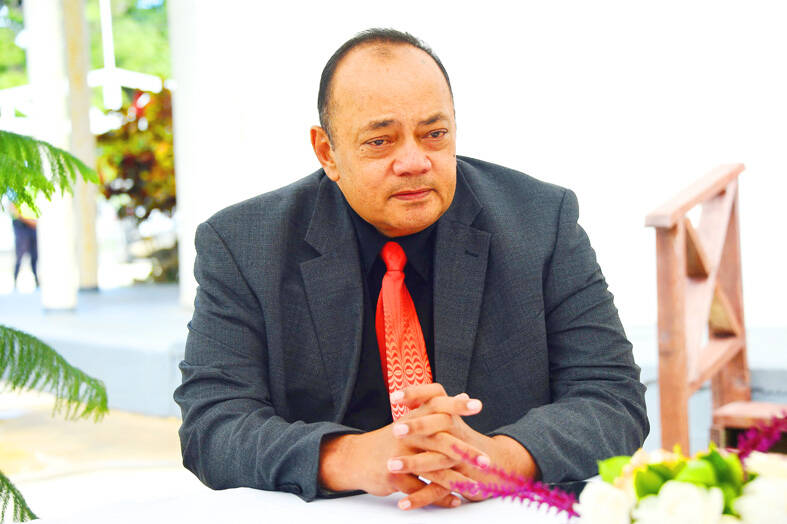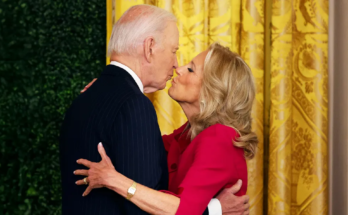‘BAD BLOOD’: Siaosi Sovaleni, who was facing a vote of no confidence, hinted that the nobility was ‘fearful’ of losing its influence and that ‘enslavement’ continues
AFP, NUKU’ALOFA
Tongan Prime Minister Siaosi Sovaleni abruptly resigned yesterday, stepping down in the wake of a power struggle with the Pacific nation’s royal family.
Sovaleni has butted heads with Tonga’s influential King Tupou VI, fueling speculation of a deepening rift between the royals and his government.
In cryptic remarks delivered before announcing his shock resignation, Sovaleni suggested the country’s nobility was “fearful” of losing its sway.

Siaosi Sovaleni holds a press conference following his resignation as prime minister of Tonga ahead of a motion for a vote of no confidence in the Legislative Assembly in Nuku’alofa yesterday.
Photo: AFP
“I thought this land had been given freedom, but there’s still enslavement,” he told parliament through tears. “I hope there’s a time where we’ll work together… If the nobility can do it and we can work together, we can achieve great things.”
Sovaleni resigned before facing a vote of no confidence brought on by opposition lawmakers yesterday afternoon. Tonga’s hereditary nobles occupy nine seats in the country’s 26-member legislative assembly. If the nobles voted as a bloc alongside the opposition, they would have enough numbers to force Sovaleni out.
It was not immediately clear who would replace Oxford-educated Sovaleni, who has been prime minister since 2021. Veteran politician and longtime rival ‘Aisake Eke is one of the likely frontrunners.
The line of Tongan kings and queens stretches back more than 1,000 years, according to a government history. Although the monarchy no longer enjoys the unbridled power of old, it remains one of the most dominant institutions across the Tongan archipelago. King Tupou VI penned a letter earlier this year saying he no longer had “confidence” in Sovaleni as Tonga’s armed forces minister.
Sovaleni refused to stand down from the portfolio, sparking a tense standoff between the two. Eventually Sovaleni backed down, delivering a traditional apology to the king and resigning from the armed forces ministry.
Although the details of the disagreement remain a mystery, it appears this was not enough to quell the bad blood between the two. Tonga overhauled its constitution after pro-democracy protests in 2006, which spiralled into angry riots that left swathes of the capital, Nuku’alofa, in smoking ruins.
At the time, the Tongan king held immense sway as the country’s head of state, head of government and military commander-in-chief. Although the monarchy eventually agreed to devolve much of its responsibility to a Cabinet of elected lawmakers, its power has not been totally diluted. The king still has the power to veto legislation, and appoints the prime minister on the advice of the Tongan parliament.
A developing country of about 106,000 people spread across dozens of islands, Tonga’s debt-laden government is seen as particularly vulnerable to economic pressure from China. It owes China’s export bank about US$130 million — almost one-third of its GDP. Repayments on that loan were scheduled to start spiking this year.



